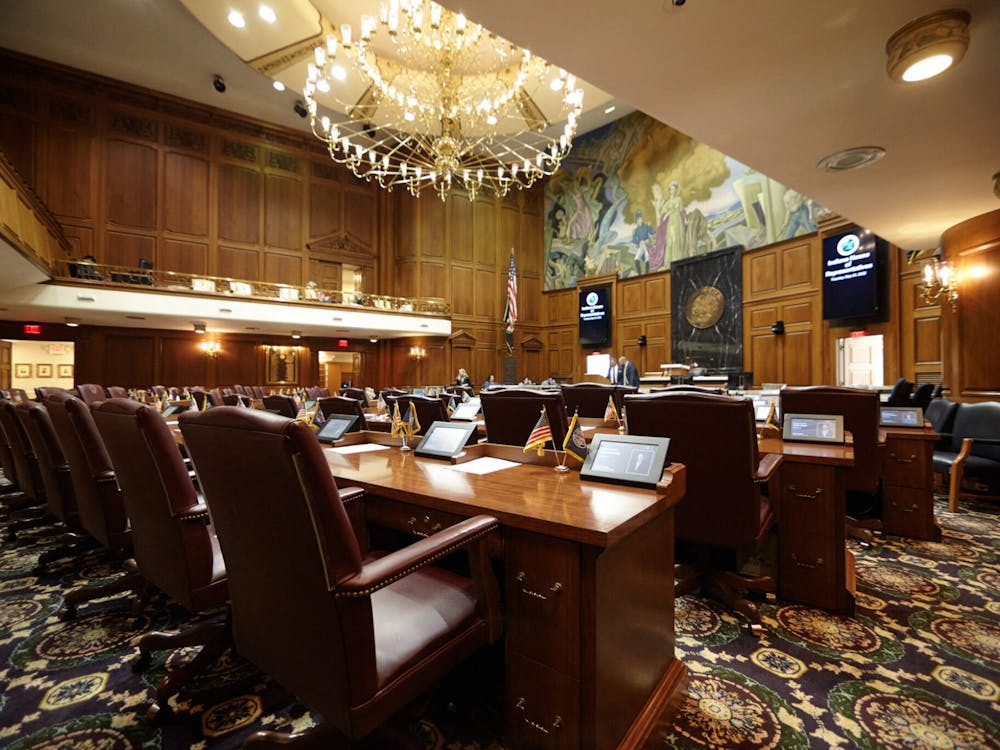INDIANAPLOLIS (AP) — Unlike the NFL and its players, the Super Bowl host committee can't afford to stop the clock.
The countdown was set to hit 337 days Friday night, and the clock in Indianapolis will continue to run no matter what happens in collective bargaining negotiations.
"We absolutely mean what we've been saying and that is we believe common sense will prevail," 2012 host committee chairman Mark Miles said Friday. "If there is a lockout or any other scenario, we're going to try and block that out and have blinders on because we believe we're going to have a game in 2012."
The host committee has no choice because the labor negotiations have become a high-stakes poker game for Indianapolis.
Some estimate the windfall from the city's first Super Bowl, scheduled for Feb. 5, could reach upward of $400 million. If the game is canceled, Ball State professor Michael Hicks believes the city would lose $200 million.
So, not surprisingly, most in Indy are keeping watch over what happens in Washington, where league officials, team owners and NFL Players Association moved the deadline for the second time in less than 24 hours.
Some thought a lockout would begin when the current CBA expired at the end of Thursday, but that was averted when the sides agreed to a 24-hour delay Thursday afternoon. On Friday, after meeting again in front of a federal mediator, a one-week extension was announced.
The biggest sticking point in negotiations has been how to divide the league's revenues, including what cut team owners should get up front to help cover certain costs, such as stadium construction. Under the old deal, owners received about $1 billion off the top. They entered these negotiations seeking to add another $1 billion to that.
Among the other significant topics: a rookie wage scale; the owners' push to expand the regular season from 16 games to 18 while reducing the preseason by two games; and benefits for retired players.
"I think there has been enough discussion, and enough substantive discussion, that the mediator thought it was worth it to keep at it," NFL lead negotiator Jeff Pash said.
Miles is doing the same thing in Indy.
This week, he's read a "couple of hundred" articles detailing negotiations, stayed in contact with the league office and at least one league owner though he's not been given any progress updates.
He's also trying to work out details regarding Indy's inclement weather plan, which could be announced next week. And he's now fielding more questions about the impact a potential work stoppage might have on the Super Bowl.
Miles and his team refuse to get distracted by the twists and turns of the NFL's labor strife.
"We've thought about every imaginable scenario and we can be ready in February," Miles said. "The drop dead date for the league to have a season, I think, would probably be earlier than it would be for us because we're not going to slow down. We're going to be ready."
Indy was awarded the game on the same day — May 20, 2008 — that owners opted out of the current CBA, and the city does have some built-in flexibility if the season is delayed.
As part of the city's bid, league officials asked Indianapolis to block out more than 18,000 hotel rooms for two February weekends. That means the game could be played a week later, Feb. 12, too.
NFL officials have said blocking out two weekends has become a common requirement in recent years, partly because of security concerns.
But the NFL does have one advantage that the Super Bowl organizers don't: Stopping the clock.
"I make it a point not to have that ticking digital clock in my office," Miles said with a chuckle. "In many respects, we've been at full speed for three years and we feel things are on track. No additional adrenaline is needed."




